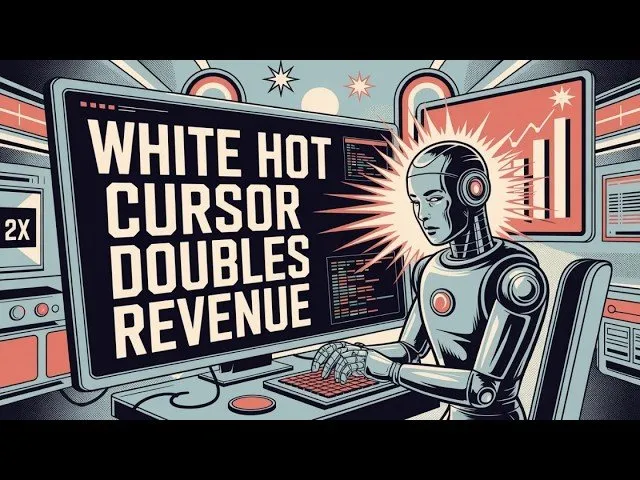Table of Contents
Three leading economic historians reveal how China's rise, energy transitions, and state-directed capitalism signal the end of four decades of globalization.
Key Takeaways
- China's integration into global markets has fundamentally altered interest rates, debt levels, and wealth distribution worldwide since the 1990s.
- Ultra-low interest rates created massive asset bubbles while enabling social discontent through rising inequality and productivity stagnation.
- The shale boom was only possible due to dysfunctional monetary policy, masking underlying energy constraints that are now reasserting themselves.
- Europe faces existential energy security challenges that may force rapprochement with Russia despite current geopolitical tensions.
- Government-directed capital allocation is replacing market-driven investment as states prioritize strategic industries over financial returns.
- Traditional indexing and passive investment strategies will fail in an era of state capitalism and deglobalization.
- Demographics create inflationary pressures as aging populations require unproductive care services while reducing overall economic efficiency.
- The semiconductor restrictions on China parallel pre-WWII oil embargos, raising risks of escalation between major powers.
- Financial engineering and private equity face elimination as governments redirect capital toward industrial capacity and strategic resilience.
Timeline Overview
- 00:00–12:15 — Introductions and Background: Russell Napier explains his role as strategist and Library of Mistakes founder, Helen Thompson discusses her political economy work focusing on energy, and Edward Chancellor outlines his financial history expertise including "The Price of Time."
- 12:15–28:30 — China's Transformative Impact: Discussion of how China's emergence since 1992 affected global prices, interest rates, and debt levels through currency manipulation and massive investment in productive capacity, fundamentally altering the world economy in ways nobody forecast.
- 28:30–45:45 — Interest Rates and Asset Bubbles: Analysis of how ultra-low rates created "the everything bubble" in housing, crypto, and contemporary art while building systemic risk and contributing to social discontent through wealth inequality and productivity stagnation.
- 45:45–62:00 — Energy Constraints and Shale Dynamics: Helen Thompson explains how China's rising energy demand created oil supply problems by 2005, only resolved through the shale boom enabled by dysfunctional monetary policy, now reaching natural limits.
- 62:00–78:15 — The Energy Transition Challenge: Exploration of whether renewable energy can replace fossil fuels quickly enough, the role of government subsidies, and why this transition differs from historical energy shifts that occurred naturally through market forces.
- 78:15–94:30 — Europe's Strategic Dilemma: Discussion of Europe's resource poverty, dependence on Chinese supply chains, political fragmentation, and vulnerability to both energy shocks and US-China competition, with Macron and Lagarde acknowledging European weakness.
- 94:30–110:45 — State-Directed Capitalism: Analysis of how governments will direct capital flows toward strategic industries like renewables, semiconductors, and industrial capacity while eliminating financial engineering and private equity excess.
- 110:45–127:00 — Investment Implications and Geopolitical Risks: Final discussion of how traditional investment strategies fail in deglobalized world, Japan's advantages from maintaining industrial capacity, and parallels between semiconductor restrictions on China and pre-WWII tensions.
China's Economic Revolution and Global Transformation
Russell Napier identifies China's integration into the global economy as the single most transformative force of the past three decades, fundamentally altering every aspect of international finance and trade in ways that nobody anticipated.
- China's emergence began in 1992 with the first Chinese stock accessible to foreign investors, but the scale and speed of development exceeded all forecasts. "I was just looking around the room thinking, is there anything in this room that the price of which has not been impacted by the emergence of China?" Napier observes.
- The massive investment in tangible, productive facilities represented the crucial factor that analysts missed, not merely labor mobilization. This investment scale affected global prices, employment patterns, and wealth distribution far beyond China's borders, creating ripple effects throughout the international system.
- Currency manipulation proved essential to China's strategy, depressing both inflation and interest rates globally while allowing unprecedented debt accumulation in Western economies. Napier argues the world would have developed very differently "if China had emerged without currency manipulation."
- The geopolitical shift became apparent in 2012 with Obama's "pivot to Asia," signaling that China's sphere of influence expansion would face resistance. "Every president since then has called that out," Napier notes, regardless of whether "they're called Trump or Biden."
- China's foreign exchange reserves have stopped growing, marking the end of the era where Chinese capital flows dominated global markets. This shift coincides with increasing technological and trade restrictions that suggest the integration period has concluded.
- The structural nature of US-China competition appears permanent rather than cyclical, with both parties maintaining similar positions despite changes in administration. The conflict transcends individual political leaders and reflects deeper strategic competition between established and rising powers.
The Ultra-Low Interest Rate Experiment and Its Consequences
Edward Chancellor's analysis reveals how central bank manipulation of interest rates created systemic financial instability while generating profound social and economic distortions that contributed to political upheaval across Western democracies.
- Interest rates function as the "universal price" according to Jim Grant, affecting all economic relationships and getting "into all the cracks" as rates change. The Federal Reserve's decision to maintain near-zero rates created unprecedented distortions throughout the global financial system.
- Asset price bubbles emerged across all categories because "the interest rate is a discount rate, the capitalization rate in which we value assets." Ultra-low rates inflated everything from housing and cryptocurrency to contemporary art, creating what Chancellor terms "the everything bubble."
- Risk assessment became fundamentally distorted because "interest is also a measure of risk, an insurance premium on a loan." Reducing rates to zero was equivalent to eliminating insurance premiums while actual risks continued accumulating throughout the system.
- Leverage buildup accelerated as "interest is the price of borrowing, the price of leverage," encouraging dangerous debt accumulation that made the system increasingly fragile. The subsequent rate increases revealed cracks including UK pension fund collapses and regional banking crises.
- Productivity growth stagnated because ultra-low rates "diminish the schumpeterian creative destructive destruction forces in an economy," leading to capital misallocation and reduced innovation. The lack of creative destruction prevented resources from moving to their most productive uses.
- Social inequality increased as asset price inflation benefited wealth owners while wage growth remained subdued. This combination of "low income growth and rising inequality" created the political discontent that Chancellor argues underlies contemporary populist movements.
Energy Security and the Limits of Shale Revolution
Helen Thompson's energy-focused analysis demonstrates how China's rising demand created fundamental supply constraints that were temporarily masked by unconventional oil production, but structural problems remain unresolved.
- China's energy demand surge occurred precisely when global oil production stagnated around 2005, creating supply-demand imbalances that drove price increases and economic instability. The timing proved particularly problematic because conventional production had reached plateau levels.
- The shale boom represented a temporary solution enabled by dysfunctional monetary policy rather than genuine market forces. "The very low interest rate, quantitative easing, monetary and financial environment" made possible investments that proved economically unviable over the long term.
- Concentration into the Permian Basin indicates the shale revolution's geographic and geological limits, with other major plays like Bakken and Eagle Ford likely having "reached their peak maybe like 2015." Future growth potential appears increasingly constrained.
- Chinese energy strategy emphasizes "diversity of supply" across all energy types rather than choosing between fossil fuels and renewables. This comprehensive approach contrasts with Western binary thinking about energy transitions and suggests continued oil demand growth.
- European energy vulnerability extends beyond Russian gas to broader supply chain dependencies, particularly in metals processing for renewable energy infrastructure. "European countries are left importing more expensive, liquid natural gas" while lacking domestic alternatives.
- India's rising oil demand represents another major challenge, potentially growing "faster in India than anywhere else" as the country industrializes. Combined with ongoing Chinese demand, this creates additional pressure on global supply systems.
Europe's Strategic Weakness and Political Fragmentation
The panel identifies Europe as the most vulnerable major economic bloc, lacking energy resources, political unity, and strategic autonomy while facing pressures from both US-China competition and internal contradictions.
- Resource poverty defines Europe's fundamental challenge, with metals necessary for low-carbon energy "more concentrated in the southern hemisphere" and northern hemisphere resources primarily located "in the United States and Russia than they are in Europe."
- Political fragmentation undermines collective decision-making capability, particularly as "Germany was always reluctant to lead, but it's not unfit to lead because of the splintering of its domestic" political system. Coalition governments lack strength for decisive action.
- The EU's supranational structure creates additional complications because "they've got to have some kind of collective decision-making process that can deal with rather different energy interests that the individual member states of the European Union have."
- Macron's Bratislava speech represented a significant shift, acknowledging that European strategic autonomy was unrealistic by stating "we're defended by NATO, and we all know what NATO is, it's America." This admission of dependence undermines previous sovereignty claims.
- Christine Lagarde's warning about threats to the euro as a reserve currency reflects deeper structural problems. As Russell notes, "Not one of them ever asked me about the threat to the euro as a reserve currency. They just asked me about the threat to the dollar as a reserve currency."
- German-Chinese economic relationships create particular complications for European unity, with German companies having "had for a long time a rather different relationship to China than companies of any other European country, particularly the car makers."
The Rise of State-Directed Capital Allocation
The conversation reveals an emerging consensus that market-based capital allocation has failed, leading to inevitable government intervention in directing investment flows toward strategic priorities rather than financial returns.
- Financial engineering faces elimination as governments recognize that "you could argue that you just can't have wasted capital gearing up existing income streams. You need to build new assets" for strategic resilience and industrial capacity.
- Private equity represents a particular target for policy makers, with Russell noting that prosecutor Brendan Ballou was "given permission to write a book called Plunder: High Private Equity Stealing America" as "an excoriating attack on private equity."
- Pension fund redirection into government-controlled investment vehicles exemplifies the new approach, with the UK's proposed "50 billion UK growth fund" forcing "money from ultimately the citizen" into state-directed projects regardless of returns.
- Tax policy will differentiate between productive and rentier activities, potentially returning to earlier distinctions where "unearned income was the most despicable, appalling thing you could imagine" while productive investment receives preferential treatment.
- Industrial capacity rebuilding requires massive capital investment that markets alone cannot provide at the required speed. "If the market doesn't deliver it, I don't think the market will deliver this time because it's not about energy, it's about emissions," Russell explains.
- Friend-shoring strategies will direct capital toward allied nations rather than lowest-cost producers, fundamentally altering global supply chains and investment patterns. This represents a permanent shift away from pure market efficiency toward strategic considerations.
Investment Strategy in a Deglobalized World
The panel argues that traditional investment approaches including indexation and passive strategies will fail catastrophically in the new environment, requiring fundamental rethinking of portfolio construction and risk management.
- Index investing becomes counterproductive because it "gives more capital to the companies with the largest market capitalization," which Adam Smith would find laughable as "the inverse of capitalism." The approach worked only during the financialization bubble.
- Institutional investors face particular constraints because "they're bounded by their benchmarks" that "reflect the conventional and reflect the trends of the past 40 years." These benchmarks include significant Chinese exposure despite geopolitical risks.
- Japan offers advantages because "they have a lot of these stocks" in strategic industries since "Japan didn't de-industrialize" and maintained industrial capacity that becomes valuable as Western nations rebuild manufacturing capabilities.
- Steel companies, smelters, and other industrial firms absent from current indices represent opportunity as governments direct capital toward strategic industries. "You won't find too many steel companies, you won't find too many smelters in the index."
- McKinsey's calculation of "$160 trillion of paper wealth created" since 2000 suggests massive wealth destruction ahead as asset bubbles deflate. Russell estimates "US wealth is roughly twice its historic level" and expects significant corrections.
- The semiconductor restrictions on China create parallel risks to pre-WWII tensions, when "we did to Japan before World War II with energy" led to military conflict. Current technology embargos represent "an act of war" that could escalate beyond economic measures.
Conclusion
The conversation reveals a fundamental transformation in the global political economy as four decades of financialized globalization give way to state-directed capitalism focused on strategic resilience rather than pure efficiency. China's integration into world markets created temporary conditions of low inflation and ultra-low interest rates that enabled massive debt accumulation and asset bubbles, but these dynamics have reached natural limits.
Energy constraints, demographic pressures, and geopolitical competition now force governments to direct capital flows toward strategic priorities including renewable energy infrastructure, industrial capacity, and supply chain security. Traditional investment strategies based on indexation and passive allocation will fail catastrophically in this new environment, requiring active management focused on companies and sectors that benefit from state investment while avoiding regions subject to sanctions or capital controls.
Practical Implications
- Avoid passive indexing strategies that give disproportionate weight to overvalued tech stocks and Chinese companies facing geopolitical restrictions
- Invest in strategic industrial sectors including steel, smelting, semiconductors, and manufacturing companies that governments will support through directed capital flows
- Focus on Japanese equities which maintained industrial capacity during financialization and benefit from friend-shoring as China relations deteriorate
- Reduce exposure to private equity and financial engineering sectors targeted for elimination by government policy makers seeking productive investment
- Consider infrastructure and renewable energy projects that receive government subsidies and preferential capital allocation despite questionable market returns
- Avoid heavily leveraged companies particularly in real estate and utilities as higher interest rates reveal unsustainable debt levels accumulated during ultra-low rate period
- Maintain geographic diversification outside China and Europe to reduce exposure to sanctions, capital controls, and energy security vulnerabilities
- Prepare for inflation persistence as demographics, deglobalization, and energy transitions create structural price pressures that central banks cannot easily control
- Monitor sovereign debt sustainability particularly in Europe where energy costs, demographics, and political fragmentation create fiscal pressures
- Build resilience against supply chain disruptions by investing in companies with domestic or ally-nation production capabilities rather than China-dependent operations





